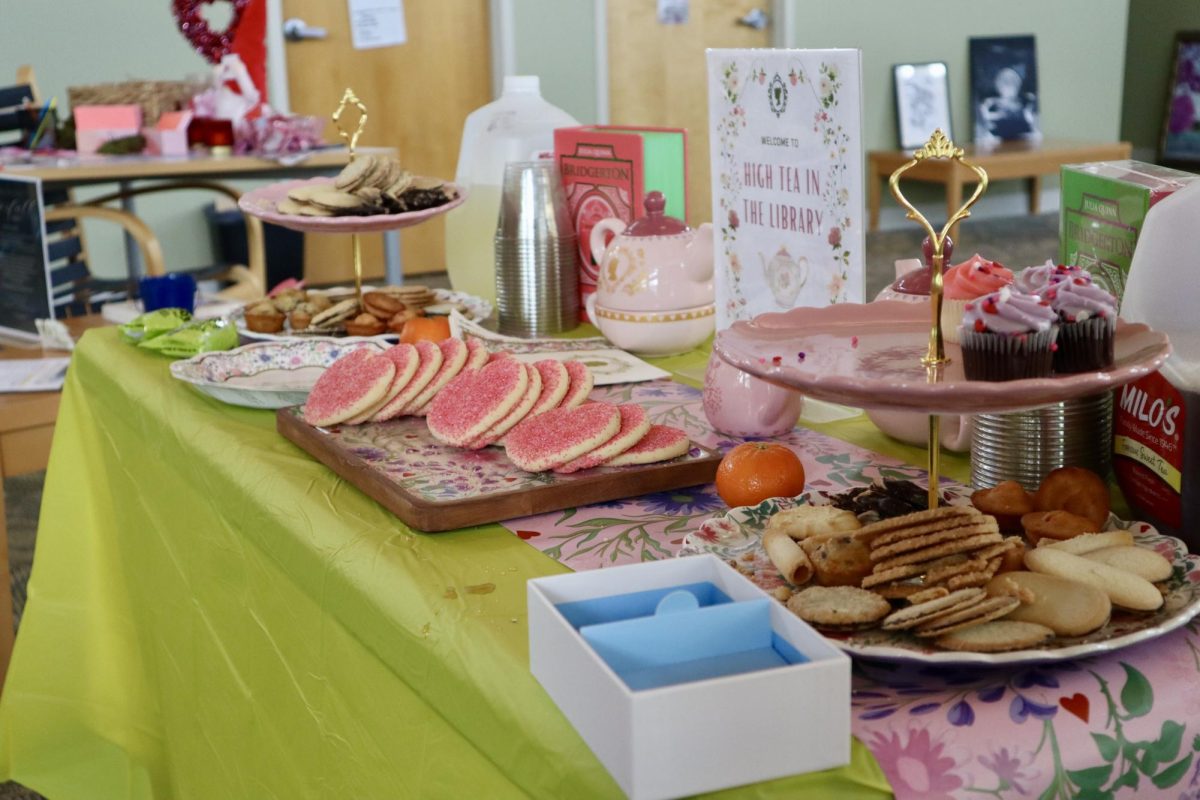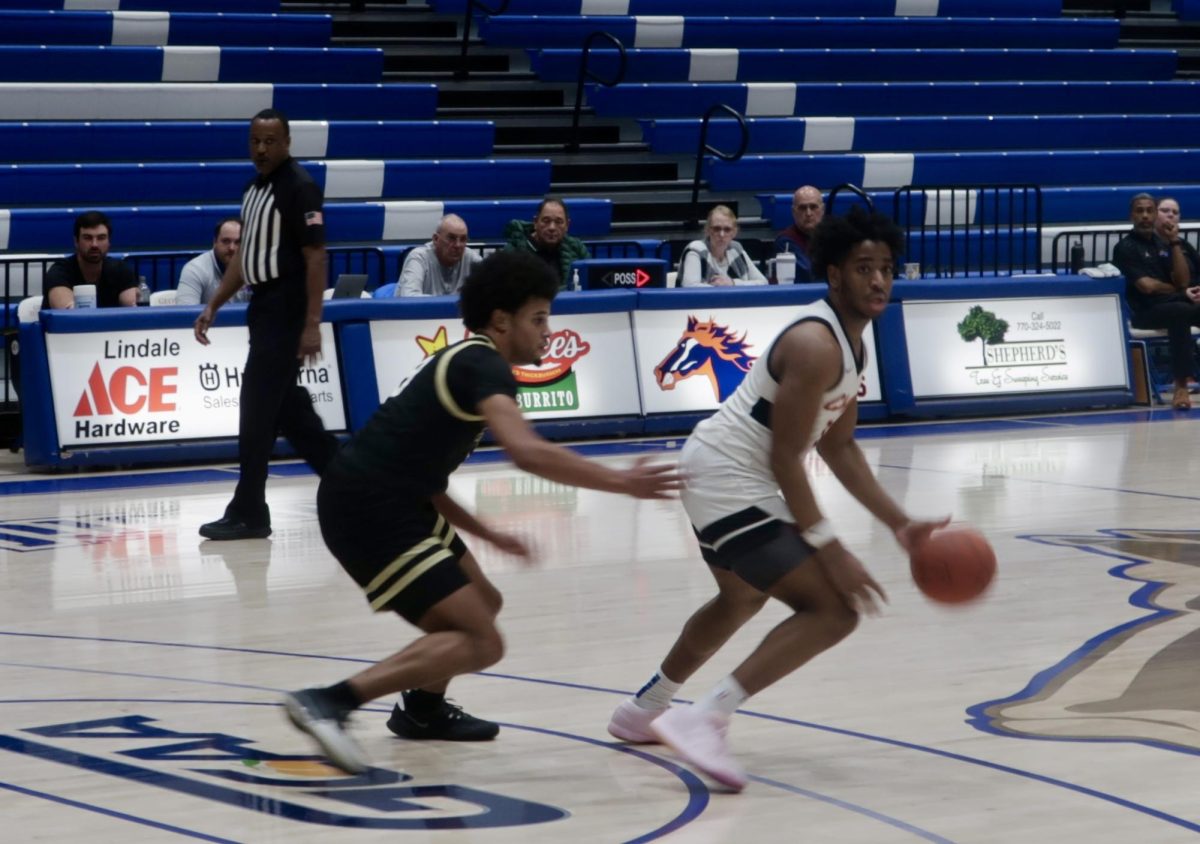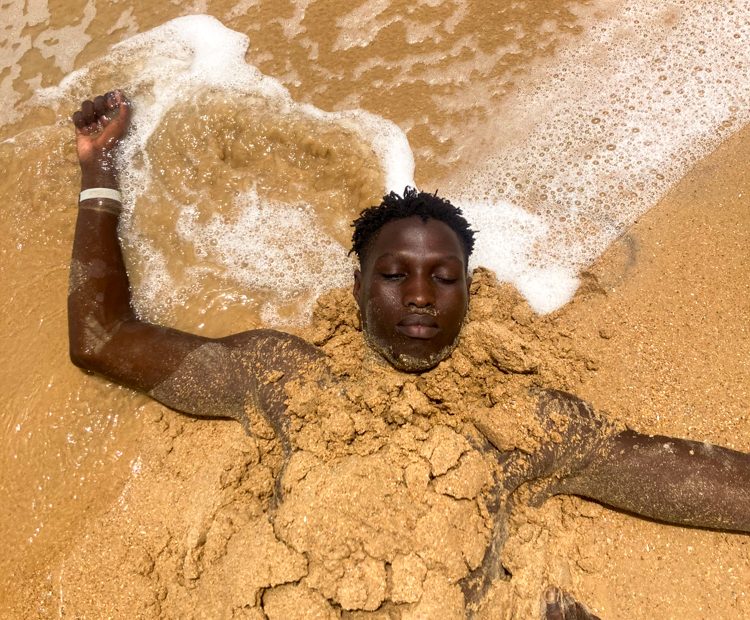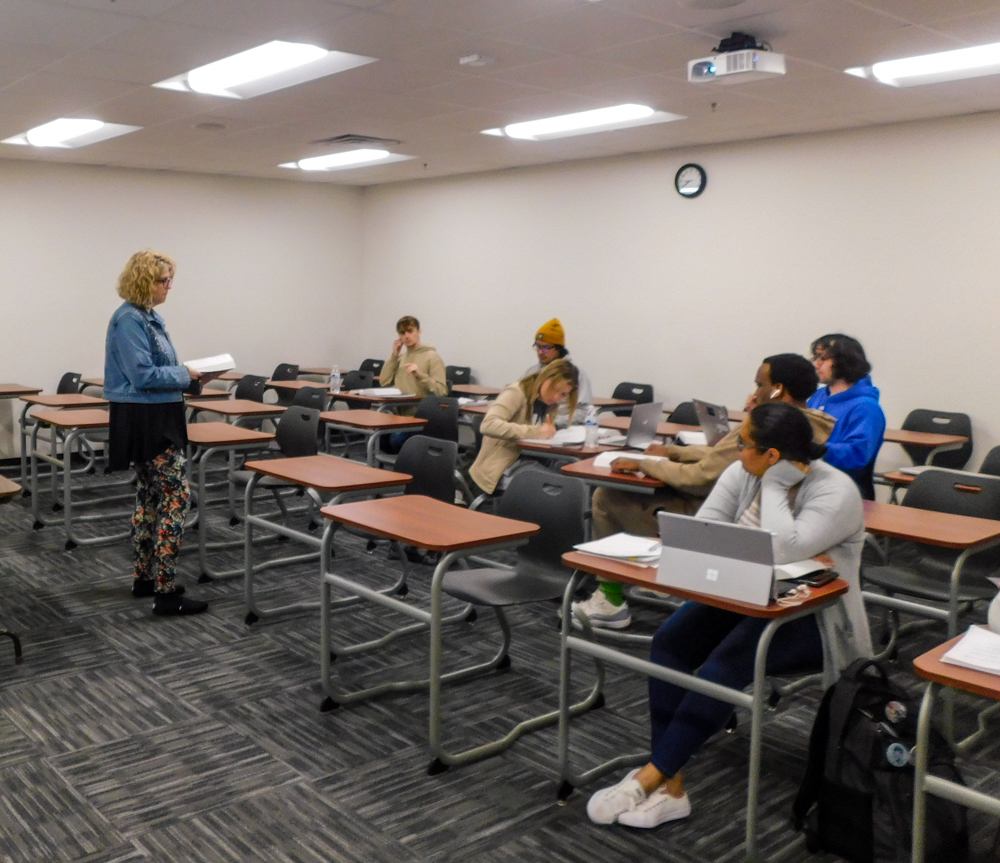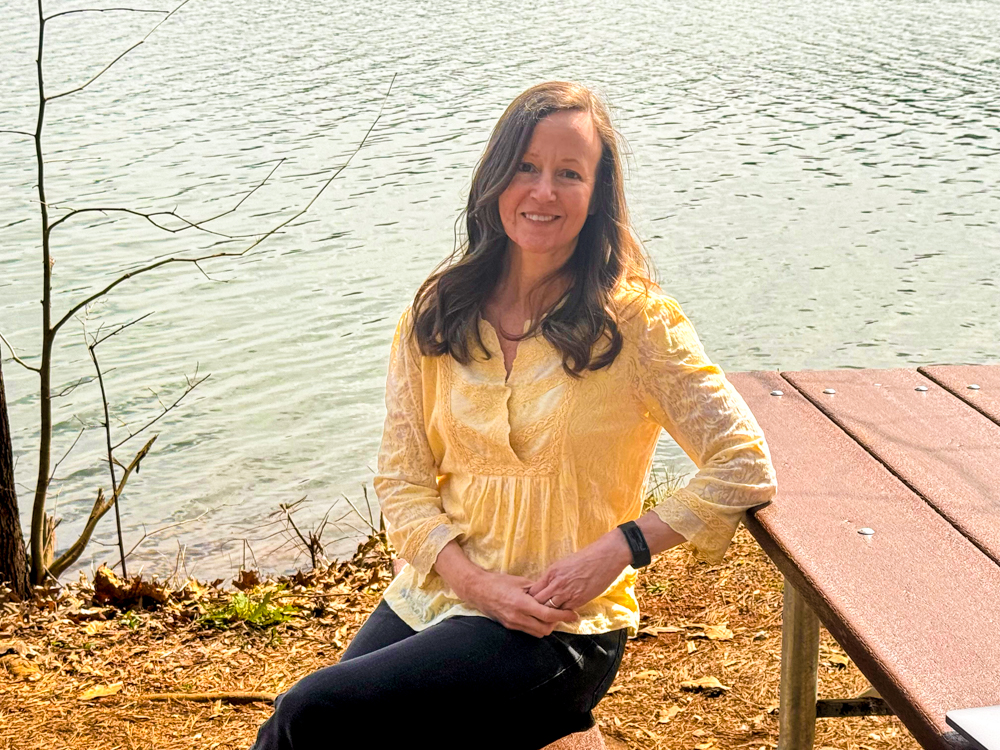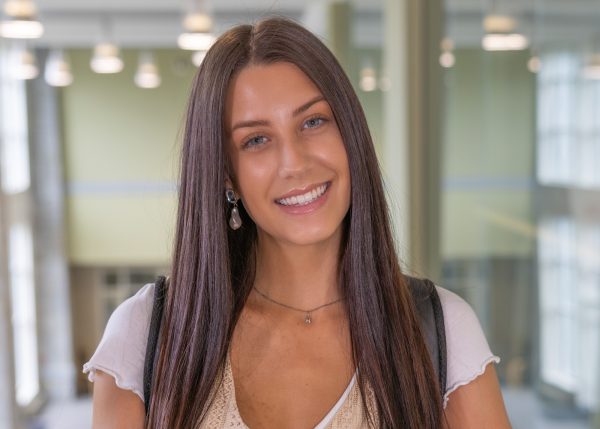In the Cartersville library on Sept. 17, students and faculty gathered for a “Lunch and Learn” event that brought to light the haunting experiences of two survivors from the Oct. 7 attacks in Gaza.
Survivors Lahav Deri and Oshrit Sabag, shared their personal experiences related to the events of that day, highlighting the human cost of the conflict and urged for more conversations to find a peaceful solution.
Deri, a man who faced unimaginable horror during the attacks at the Nova music festival, shared his harrowing experience of running and hiding from terrorists.
“When the air raid sirens blared, it felt like time stood still and we had only seconds to react,” Deri said. “Families were torn apart in an instant. It’s hard to fathom how one day can change everything.”
He detailed feeling an overwhelming sense of fear and how the sound of sirens and explosions shattered the peace of his life.
“I realized that the life I knew was gone,” Lahav said. He emphasized the importance of community in such dark times, stating, “We must lean on each other for support. It’s our shared strength that will help us heal.”
He and his two younger brothers, Sahar and Amit, managed to save the lives of other survivors and lead them to safety.
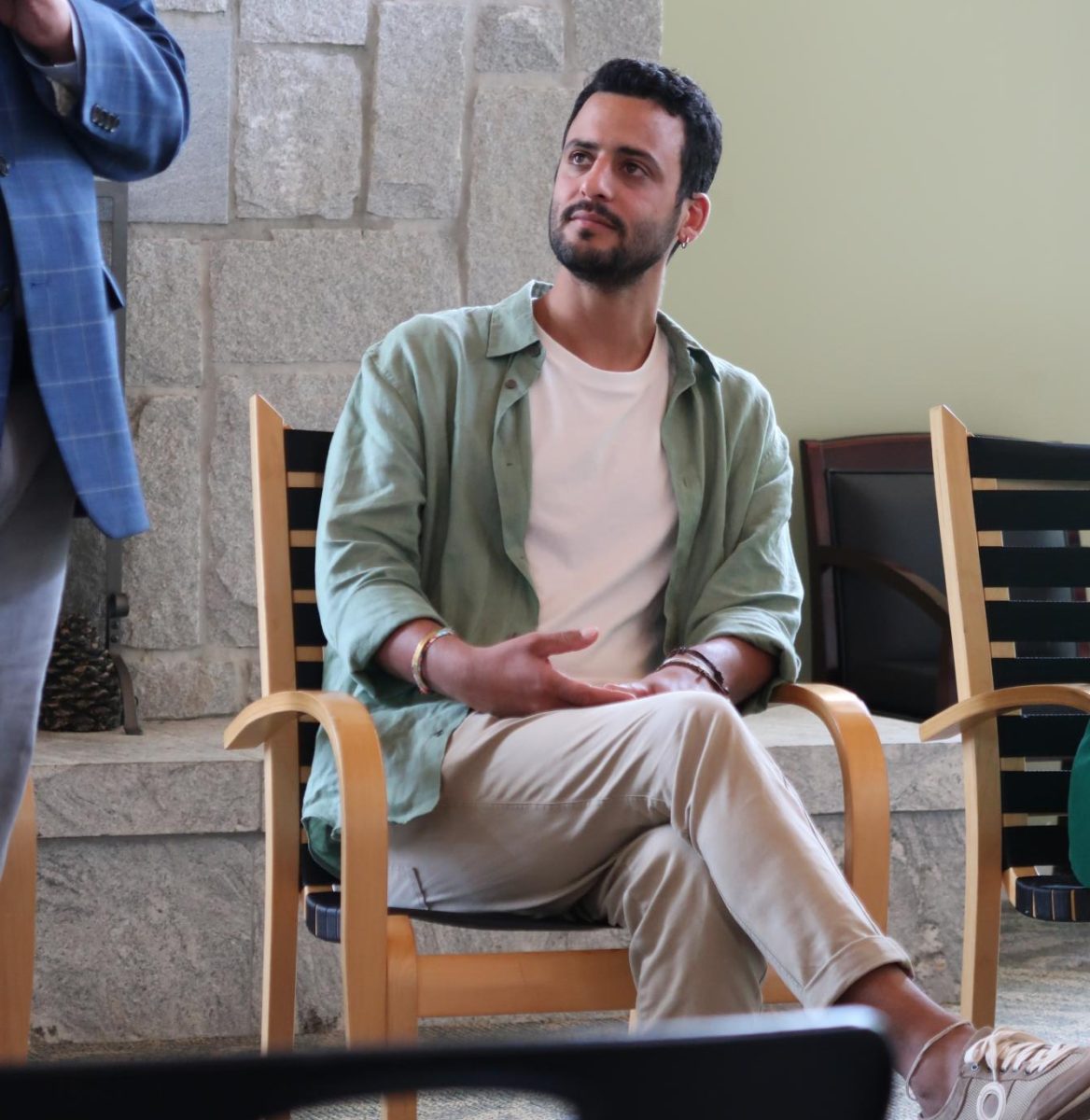
“Our stories are a testament to resilience. By sharing what we went through, we can honor those we lost and inspire others to seek peace,” Deri said.
A Major in the reserves of Sayeret Matkal, one of the IDF’s premier elite combat units, Deri joined his unit on Oct. 8 to help clear Kfar Aza of Hamas death squads, where he also lost brothers in arms.
Following Deri, Sabag spoke next, bringing her perspective as a woman who experienced the attacks first hand also.
Sabag has lived in Kibbutz Mahalos, located half a mile from the border of Gaza, for the past 22 years. She mentioned that every house in her kibbutz has a “safe room” due to their proximity to the border.
“At 6:30 a.m., we heard alarms and explosions,” Sabag said. “I woke my husband and we rushed to the safe room. Most families let their children sleep there to ensure they are safe.”
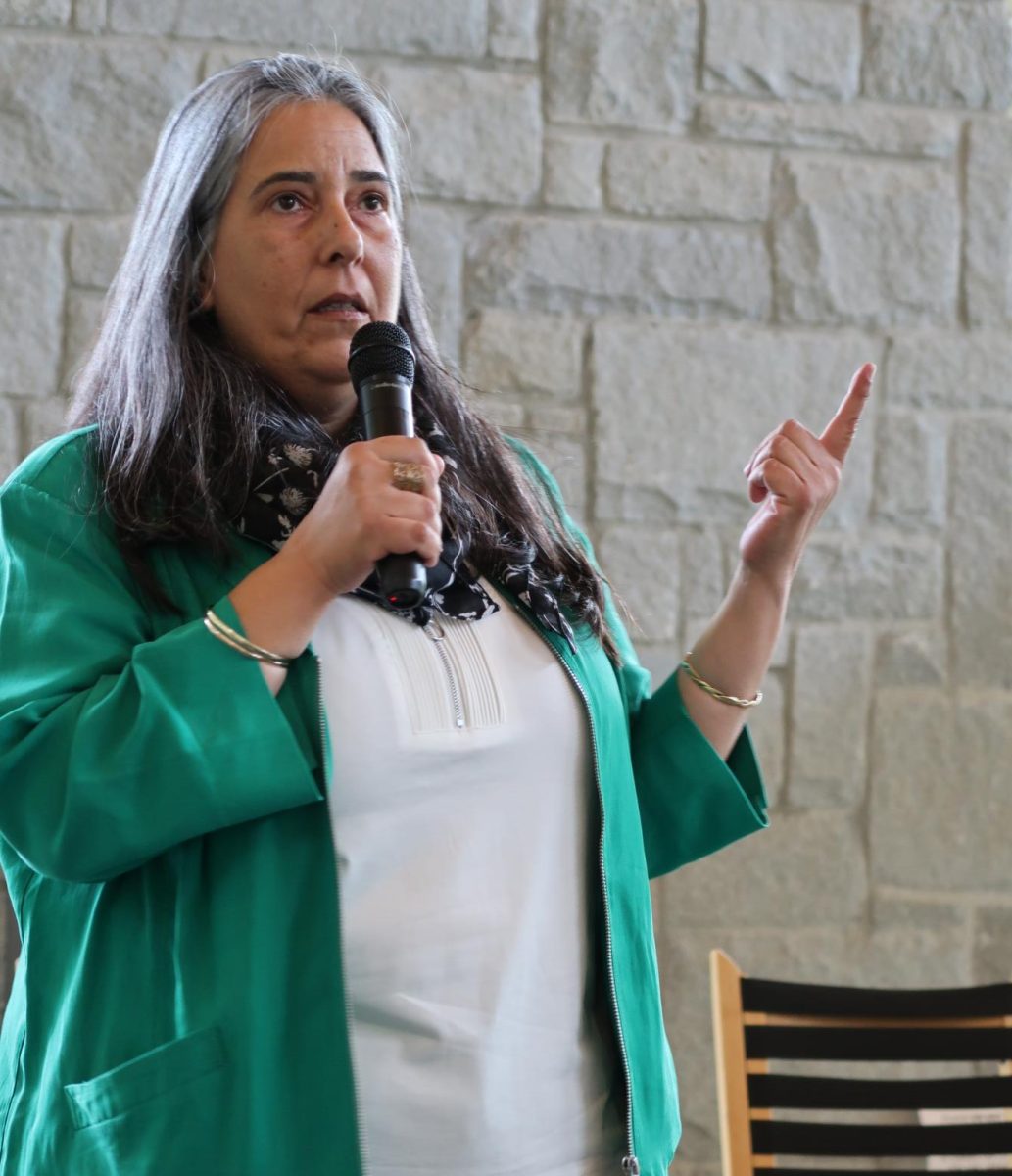
“The fear we felt that day still lingers. It’s a reminder that peace can be shattered in an instant, and we must work together to ensure it never happens again,” Sabag said.
Her heavy emotions were evident as she recounted her struggle to survive. “I remember hiding with my family, praying we would make it out alive,” she said.
Sabag’s account focused on the brutal realities faced by civilians during the attacks. She described a scene of unimaginable horror, stating that many women and children were subjected to unspeakable violence, including instances of rape.
She protested that the attackers aimed to instill fear in the community, using sexual violence as a weapon. She recounted the devastation left in the wake of the attacks, highlighting the sight of bodies scattered across the streets.
Deri added to this narrative by discussing the psychological toll of living under constant threat. Both speakers called for compassion and understanding from the audience, urging students and faculty to recognize the suffering of those affected by the conflict.
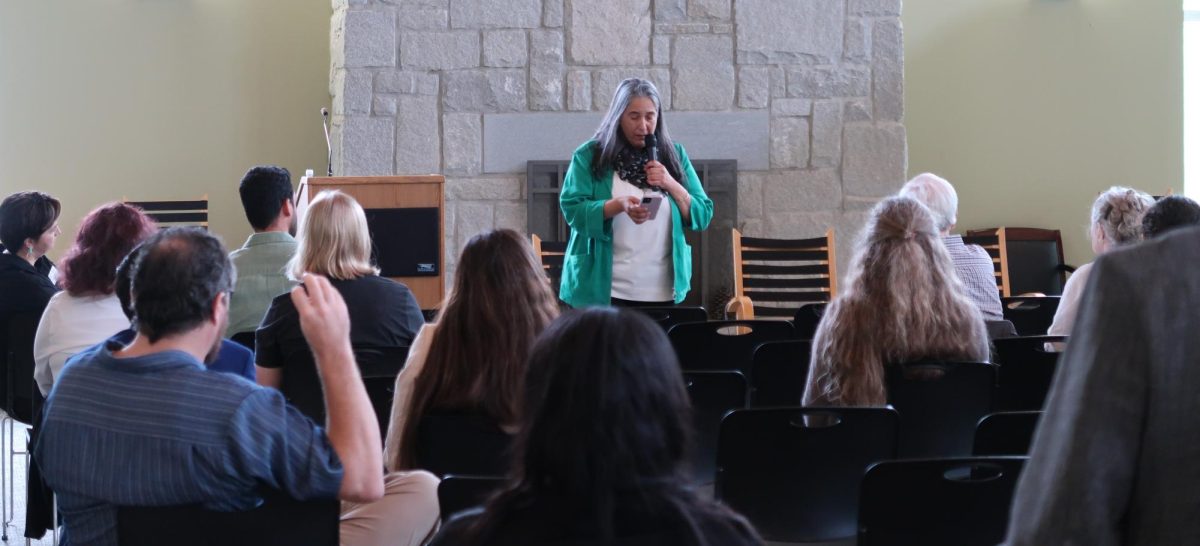
Several faculty and students listened carefully with heavy hearts as Sabag shared her story.
On Oct. 7, 2023, the world witnessed a tragic escalation of violence in Gaza, marked by two significant attacks that have deeply impacted communities and sparked global discussions about the ongoing conflict.
The militant group Hamas, which governs the Gaza Strip and has been involved in long-standing hostilities with Israel, was responsible for these attacks.
“We must speak out, not just for ourselves but for those who cannot,” Sabag said. “Our stories may be painful, but they are important.”





